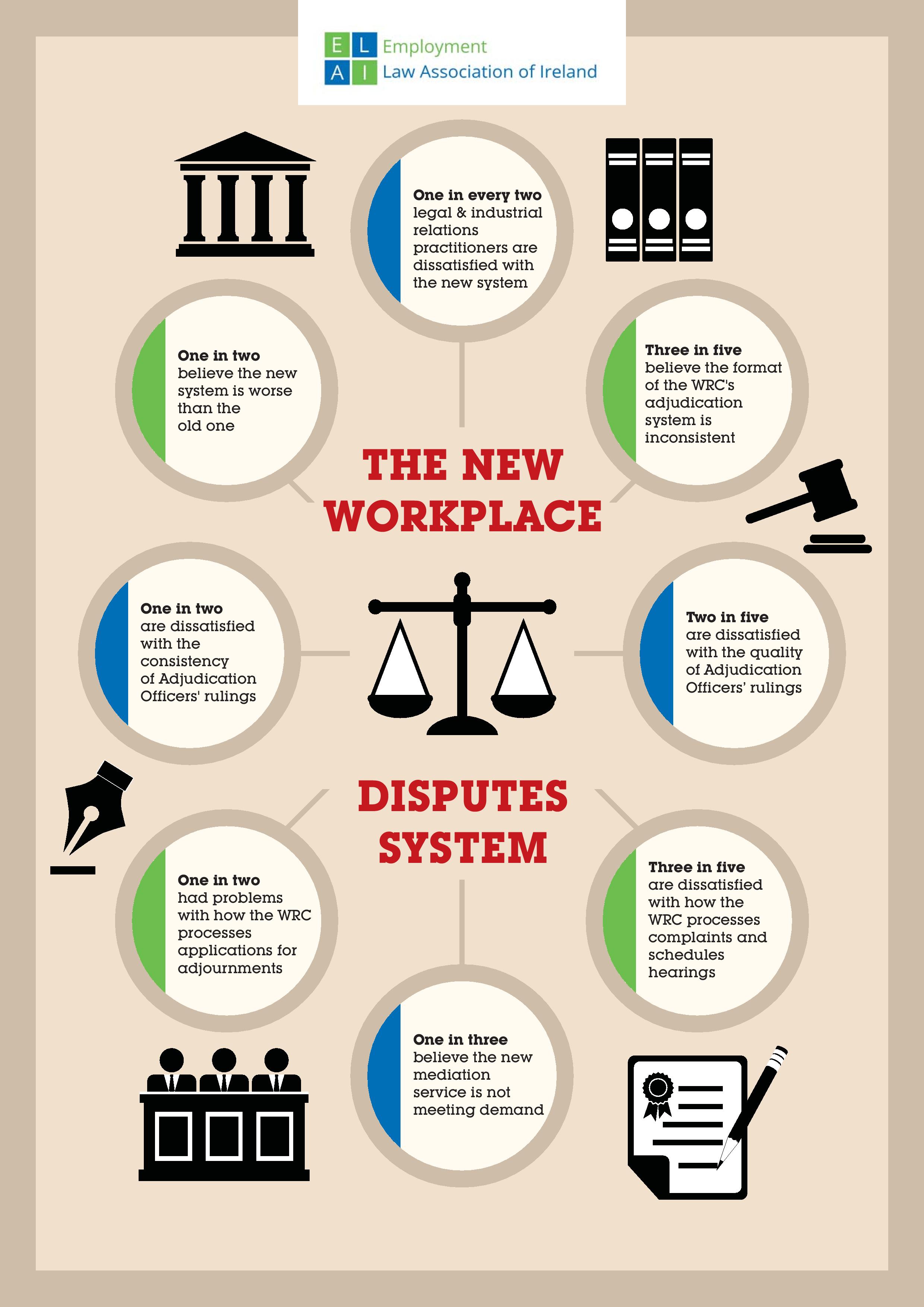A survey of employment law and industrial relations practitioners by the Employment Law Association of Ireland on the two-tier workplace disputes system introduced last year by the Workplace Relations Act 2015 has identified significant problems with aspects of how the Workplace Relations Commission is operating.
Substantial numbers of the 139 legal and industrial relations practitioners who responded are dissatisfied with the new system, with one in every two practitioners believing it is worse than the much-criticised, older version. The survey was covered by RTE News, the Irish Times and an opinion piece by ELAI Chair, Colleen Cleary was published in the Irish Examiner.
The infographic below details the main results of the survey which was conducted by Dr Brian Barry, committee member of the ELAI and lecturer in law at Dublin Institute of Technology.

Survey findings
General views of the new system
• 49% of practitioners said that they were either dissatisfied or very dissatisfied with the new two-tier system, while just 31% said that they were either satisfied or very satisfied. 20% of practitioners said that they were neutral in this regard.
• 48% of practitioners said that the new two-tier system is worse than the much-criticised and complex system for resolving workplace disputes that preceded the reforms under the 2015 Act. 34% of practitioners said that the system had improved while 18% said that system was neither better nor worse.
WRC Adjudication Service
The Workplace Relations Act 2015 introduced a new Adjudication Service to adjudicate on workplace disputes in the first instance. Practitioners were asked for their views on this new service.
• 40% of practitioners expressed satisfaction with the competence of Adjudication Officers at the Workplace Relations Commission, 30% were dissatisfied and 30% were neutral on this point.
• 63% practitioners said that the format of hearings hosted by Adjudication Officers at the Workplace Relations Commission which are now held in private was not consistent from hearing to hearing.
• 51% of practitioners were dissatisfied with the consistency of Adjudication Officers’ rulings. Just 18% said they were satisfied and 31% said they were neutral in this regard.
WRC Mediation Service
The Workplace Relations Act 2015 introduced a new mediation service as a voluntary alternative to adjudication.
• More practitioners (34%) expressed the view that they were dissatisfied with the availability of mediators than were satisfied (27%). Many practitioners commented that resources and personnel allocated to the service were insufficient to meet the demand for the new service, leaving many workers and employers without access to mediation.
Processing complaints at the WRC
• 60% of practitioners expressed dissatisfaction with how the Workplace Relations Commission processed complaints and scheduled hearings.
Labour Court
Practitioners were asked for their views on the revised Labour Court which now also hears appeals from decisions of Adjudication Officers at the Workplace Relations Commission.
• 59% of practitioners expressed satisfaction with the competence of the Labour Court. Only 13% expressed dissatisfaction.



